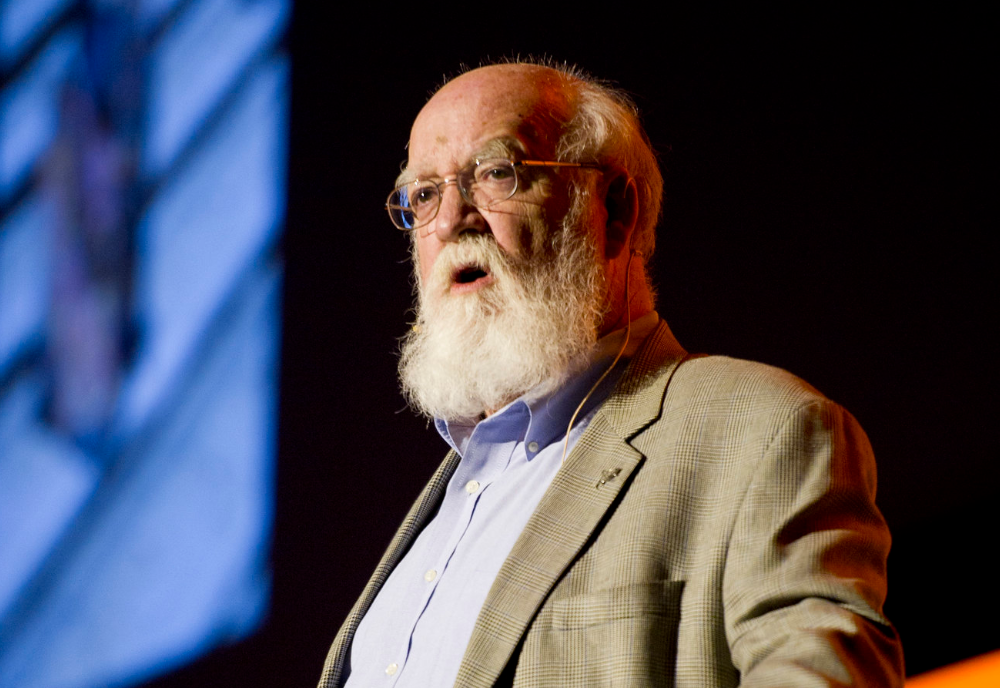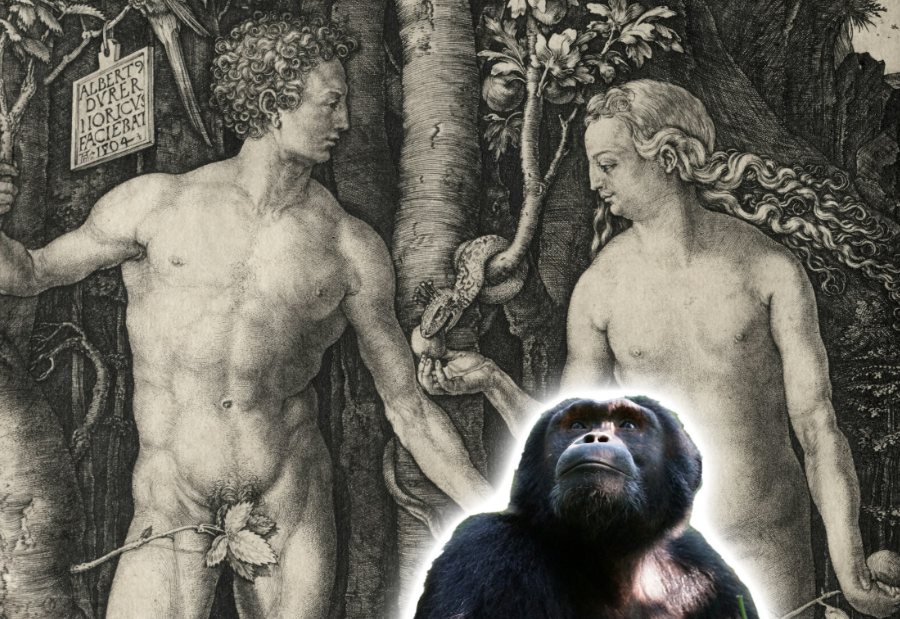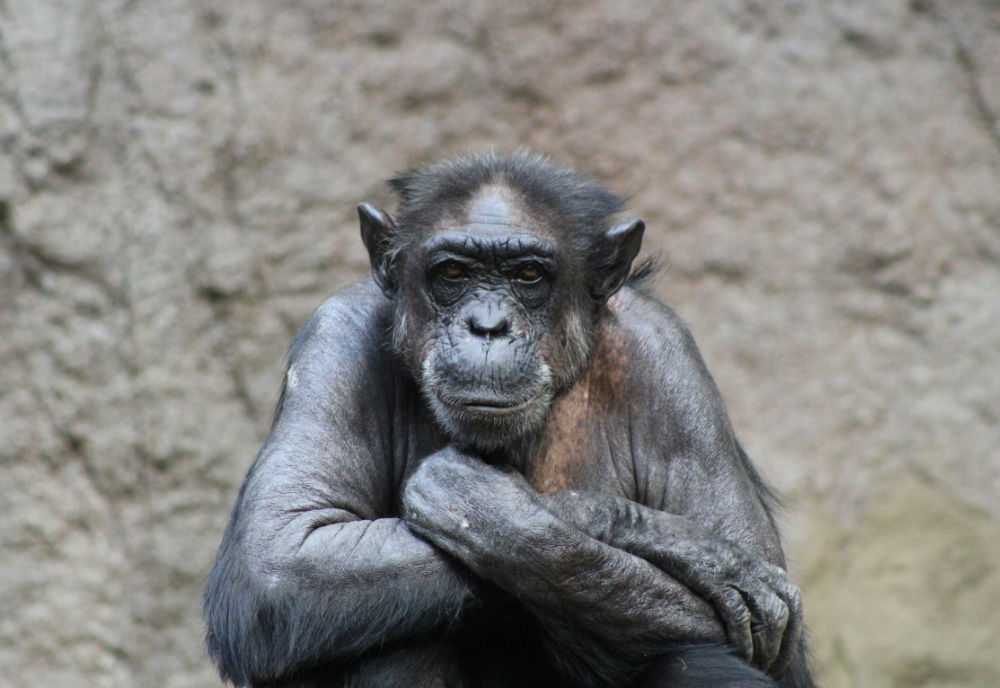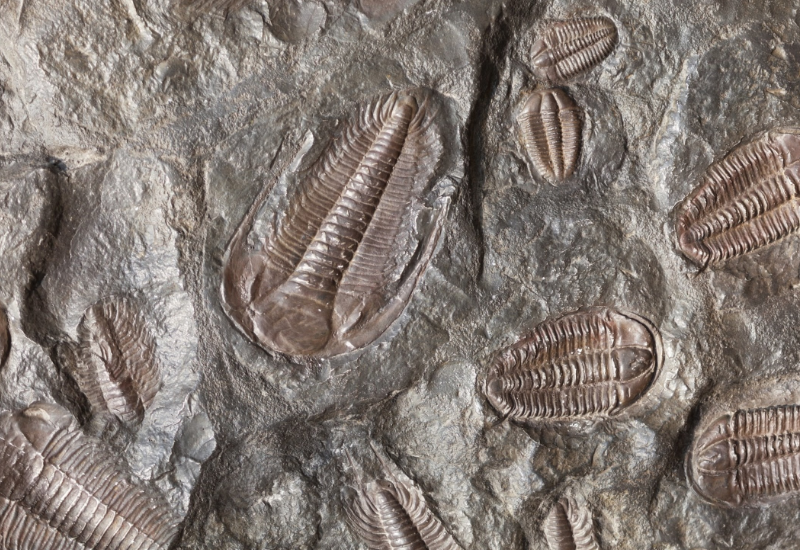A stanza in the Buddhist text Dhammapada states: “There never was, there never will be, nor does there exist now a person who is wholly blamed or wholly praised.”
The obituaries for materialist philosopher and Darwinist – a few would say ‘ultra Darwinist’ – Daniel Dennett, who died on 19 April, exemplify the essential correctness of the Buddhist text. While some have provided solid praise for the late philosopher, others have equivocated about his work. Some have been quite critical, although not ‘blaming’ him as such.
What would Professor Dennett have thought about me quoting from a Buddhist text? Arguably, Buddhism, in its original form and in the context of ancient Indian philosophy of 2500 years, was an atheistic creed.
I recall reading a mocking critique of Dennett in the New York Times in 2006. Leon Wieseltier, who reviewed Dennett’s book Breaking the Spell: Religion as a Natural Phenomenon, asserted that Dennett seemed to cultivate the impression that he was “Giordano Bruno with tenure at Tufts University”. Thankfully, the obituaries of Dennett have not been as scathing.
Dennett has been both the ‘mocked’ and the ‘mocker’. The first work of Dennett’s that I read was his critique of the late palaeontologist and science historian Stephen Jay Gould. In Dennett’s book Darwin’s Dangerous Idea, first published 1995, there is a chapter headed ‘Bully for Brontosaurus’ – the title of one of Gould’s books. Dennett strongly critiques Gould’s views and statements regarding biological evolution.
In a critique of Gould’s 1989 book, Wonderful Life: Burgess Shale and the Nature of History, Dennett seemingly mocks Gould with one sub-chapter headed ‘Tinker to Evers to Chance: The Burgess Shale. Double-Play Mystery’. In another sub-chapter, Dennett queries whether Gould was ‘The Boy Who Cried Wolf’.
Later, in the New York Review of Books, Dennett and Gould debated aspects of evolution. One aspect of the Dennett-Gould ‘dispute’ went back to events about 520 million years ago – plus or minus several million years. The Burgess Shale in Canada is where animal fossils were discovered in the early 20th century. In Wonderful Life, Gould asserted that “turn the wheel of life a million times” to around 520 million years ago, Homo sapiens or human-like creatures – and, in fact, even mammals – would not have arisen in this “counter evolutionary factual hypothetical”.
Dennett made light of Gould’s narrative as “Burgess double-play mystery”. Suffice to say that, after reading Dennett’s critiques of Gould and their debates, I side with Gould.
It is not only Dennett who mocked Gould for devising the construct of “replaying the tape of life”. Simon Conway Morris was extremely critical of Gould in his 1998 book (written in direct response to Gould’s thesis) – The Crucible of Creation: Burgess Shale and the Rise of Animals.
Admirers and detractors have considered Dennett to be ultra- Darwinist and atheist. Conway Morris is one evolutionist who can by no means be considered an atheist.
I venture to suggest that Conway Morris is a neo-Christian palaeontologist. He is an ‘anti-atheist’ (not ‘anti-theist’). In one of his articles, he declared there were “no mourners” beside the “coffin of atheism”.
Twenty years after Gould’s death, Conway Morris, in his book From Extraterrestrials to Animal Minds: Six Myths of Evolution (2022), is still critiquing. Just as Dennett and Gould debated, Conway Morris and Gould debated – mainly regarding the Burgess Shale animals. Their debates were reproduced on a website devoted to Gould’s writings.
Dennett and Conway Morris converge – although, not in the evolutionary and paleontological sense – in their critiques of Gould regarding the Burgess Shale “double-play mystery”. But these critiques came from different philosophical standpoints. In Conway Morris’ Six Myths of Evolution, it appears to me that there were more negative, critical comments of Gould than of Dennett.
Conway Morris derided Dennett’s assertion that Darwinism is “universal acid: handle with care” – reflecting a chapter title in Darwin’s Dangerous Idea. Dennett described Conway Morris’ attempt to justify his neo-Christian postulates with the process of evolution as being “bizarrely self-involved”.
Evolution-wise and philosophically, I strongly prefer Dennett’s views to that of Conway Morris, even if I would demur from some of Dennett’s statements. I strongly reject Conway Morris’ attempt to Christianise the evolution process. Science writer Martin Gardner – a columnist of ‘Mathematical Games’ columns in Scientific American for decades and an author of numerous books debunking pseudoscience – critiqued Dennett’s Consciousness Explained.
Gardner was a philosophical theist – although, not an adherent of any Abrahamic religion – and ‘mysterian’. In an essay, he quoted with approval someone writing in the 1920s who said, if humanity were to survive, a million years from now there would be things humans would not know.
Did Gardner consider that one of the things humans could not know, even in a million years, was the nature of human consciousness? In an introduction to one of his books, he stated that Dennett’s 1991 book, Consciousness Explained, was “brazenly titled”.
I believe Dennett implicitly acknowledged there were things that would not be easily discernible by humans. Nevertheless, as early as 1991 Dennett had come up with, if not a solution, ‘explanations’ about human consciousness.
Would Dennett agree with the statement made in the book Fundamentals of Marxism-Leninism, published in the 1960s, that “Marxists believe that there are things Mankind has not yet known, but not that humans cannot know”? Replace ‘Marxists’ with ‘ultra-Darwinist’, ‘philosophical materialist’ or ‘atheist’. Would the non-mysterian Dennett agree with that assertion? Perhaps the answer should not be that much of a mystery.
Philosopher and jurist Thomas Nagel delivered a non-materialist critique of Dennett’s ‘illusions’. An older contemporary of Dennett, Nagel is considered by some to be an atheist – perhaps a ‘soft’ one, if it can be put that way. Although, having read three of Nagel’s books, I do not discern any concrete or implied statement that he considers himself to be an atheist.
While Nagel may be an atheist, philosophically he is definitely not a materialist in the mould of Dennett. It is clear from the title of his 2012 book, Mind and Cosmos: Why the Materialist Neo-Darwinian Conception of Nature is Almost Certainly False, that Nagel does not share Dennett’s materialist views.
Several days before I learned of Dennett’s demise, I read Nagel’s review of Dennett’s book, From Bacteria to Bach and Back: The Evolution of Minds. The review’s title is ‘Dennett’s Illusions’. The review is partly complimentary and partly critical. The title, ‘Dennett’s Illusions’, is double-edged. It is in part a narration with qualified support for Dennett’s claim that human consciousness is an illusion. And it is a subtle indication that a few of Dennett’s neo-Darwinian views may also be illusions. While presumably not a critic of Dennett, Nagel can, given his assertions in Mind and Cosmos, be considered as a detractor.
At the time of publication of Darwin’s Dangerous Idea, the late Philip E. Johnson, in a review of the book, ironically described Dennett’s book as ‘Dennett’s Dangerous Idea’. The word ‘dangerous’ in the title of Dennett’s book was meant to be complimentary – of Charles Darwin – in the fullest sense. Johnson, of course, made the reference to “dangerous” in a negative, if not derogatory, sense.
Dennett made notable and, in the largely complimentary sense of the word, ‘dangerous’ contributions to philosophy, evolution process and popular science.
Published 21 May 2024.
If you wish to republish this original article, please attribute to Rationale. Click here to find out more about republishing under Creative Commons.
Photo by Rocco Ancora (Atheist Foundation) Flickr CC














